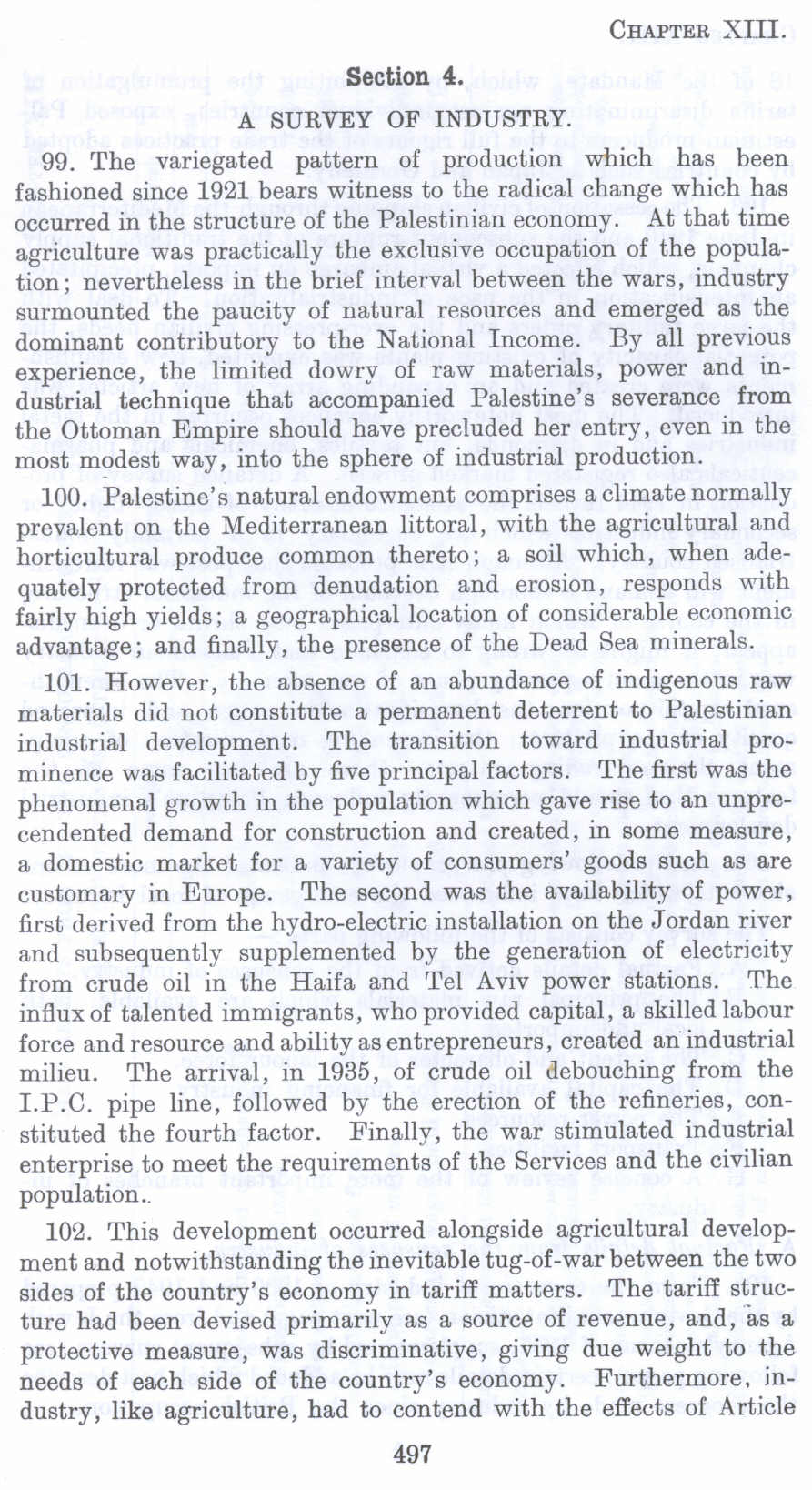| Prev | Next |  |
| Prev | Next |
| PalestineRemembered | About Us | Oral History | العربية | |
| Pictures | Zionist FAQs | Haavara | Maps | |
| Search |
| Camps |
| Districts |
| Acre |
| Baysan |
| Beersheba |
| Bethlehem |
| Gaza |
| Haifa |
| Hebron |
| Jaffa |
| Jericho |
| Jerusalem |
| Jinin |
| Nablus |
| Nazareth |
| Ramallah |
| al-Ramla |
| Safad |
| Tiberias |
| Tulkarm |
| Donate |
| Contact |
| Profile |
| Videos |
A Survey of Palestinian Industries before 1948 (Nakba), British Mandate: A Survey of Palestine: Volume I - Page 497. Chapter XIII: Section 4 |
Disclaimer
The above documents, article, interviews, movies, podcasts, or stories reflects solely the research and opinions of its authors. PalestineRemembered.com makes its best effort to validate its contents.


Post Your Comment
*It should be NOTED that your email address won't be shared, and all communications between members will be routed via the website's mail server.
Section 4.
A SURVEY OF INDUSTRY.
99. The variegated pattern of production which has been fashioned since 1921 bears witness to the radical change which has occurred in the structure of the Palestinian economy. At that time agriculture was practically the exclusive occupation of the population; nevertheless in the brief interval between the wars, industry surmounted the paucity of natural resources and emerged as the dominant contributory to the National Income. By all previous experience, the limited dowry of raw materials, power and industrial technique that accompanied Palestine's severance from the Ottoman Empire should have precluded her entry, even in the most modest way, into the sphere of industrial production.
100. Palestine's natural endowment comprises a climate normally prevalent on the Mediterranean littoral, with the agricultural and horticultural produce common thereto; a soil which, when adequately protected from denudation and erosion, responds with fairly high yields; a geographical location of considerable economic advantage; and finally, the presence of the Dead Sea minerals.
101. However, the absence of an abundance of indigenous raw materials did not constitute a permanent deterrent to Palestinian industrial development. The transition toward industrial prominence was facilitated by five principal factors. The first was the phenomenal growth in the population which gave rise to an unprecedented demand for construction and created, in some measure, a domestic market for a variety of consumers' goods such as are customary in Europe. The second was the availability of power, first derived from the hydro-electric installation on the Jordan river and subsequently supplemented by the generation of electricity from crude oil in the Haifa and Tel Aviv power stations. The influx of talented immigrants, who provided capital, a skilled labour force and resource and ability as entrepreneurs, created an• industrial milieu. The arrival, in 1935, of crude oil debouching from the I.P.C. pipe line, followed by the erection of the refineries, constituted the fourth factor. Finally, the war stimulated industrial enterprise to meet the requirements of the Services and the civilian population ..
102. This development occurred alongside agricultural development and notwithstanding the inevitable tug-of-war between the two sides of the country's economy in tariff matters. The tariff structure bad been devised primarily as a source of revenue, and, as a protective measure, was discriminative, giving due weight to the needs of each side of the country's economy. Furthermore, industry, like agriculture, had to contend with the effects of Article
Page 497